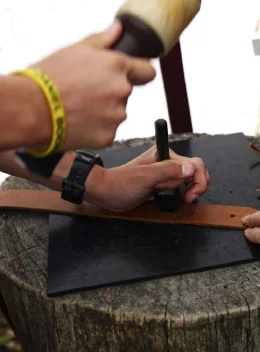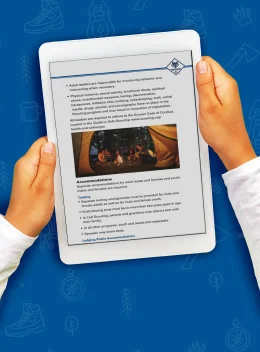Hydration Is Key. Here's How and Why
When I think about Survival, hydration is top of mind. It is fundamental to us as humans… as in over half of our bodies are made up of water.
Being dehydrated can lead to serious complications and side effects, with fatigue and crankiness being some of the first signs. Water allows our bodies to carry out basic chemical reactions and essential functions.
First and foremost, let’s talk about preparation and dehydration prevention. Obviously step one would be to drink lots of water. But how much? How often?
- According to the Mayo Clinic, a good general rule of thumb is to drink at least 3.7 liters of fluids for adult men and 2.7 liters of fluids for adult females. Roughly 20% of those fluids will come from the food you eat, and 80% from the liquids you drink. Keep in mind that no single “formula” works for everyone. It is of the utmost importance to pay attention to your Physical activity, climate, and personal body type will have an impact on those numbers!
- To be prepared for emergencies, you should have a minimum of a three-day supply of water on hand (1 gallon per person, per day). Obviously, water is heavy! So, you need to have a plan on how to get clean water to drink.
- Drink plenty of fluids in the days leading up to your next trek. The water you consume today can help prepare for how you will feel tomorrow.
Let’s Talk Water Filters
One of the most important items you can have in your pack for emergencies is a water filter, along with a knife, way to start a fire, and small pot. For a more in-depth review on how to choose a water filter, check out this blog and the Wilderness Survival merit badge pamphlet for sanitizing your water.
It is always a great idea to have a water filtration system packed away. The Sawyer Mini filtration system is ultra-lightweight and compact, and filters out matter and microbes, down to 0.1 microns. Filtration systems (like the Sawyer Mini) reliably remove common contaminants like E. Coli and Cryptosporidium.
Did You Know?
Dew water can be a potential source of water! You can drink morning dew in an emergency (and for more information, check out the Emergency Preparedness merit badge pamphlet on this!). It is the water that collects overnight (so obviously, you need to collect it in the morning). There are a couple of safety guidelines for this, first being to not collect dew on or near poisonous plants (need help recognizing the three most common? Check out this blog). The second rule of thumb is be sure to not collect dew on plants that have been chemically treated (like on farmland) or in obvious areas where animals have used the bathroom. The easiest way to collect water is to use an absorbent cloth (t-shirt, towel, etc) and rub it over grass and tree leaves. Wring out the water into a drinking container. For safety, use a water filter to drink the water.
To Close…
So, to wrap things up, plan ahead and have backup because hydration is IMPORTANT. Drink water often – do not ration it. As stated in the Emergency Preparedness merit badge pamphlet, “Trying to make water last longer does more harm than good.”
Water is critical for our bodies to function, so be sure to drink before you are thirsty, even in the winter, and definitely anytime you are outside being active. Always have a full 1-liter water bottle with you and take regular drinks from it. If you are planning on being out for a long hike, take an extra liter or more. You should drink enough water that you don’t feel thirsty and your urine is clear or light yellow. Stow away a water filter, and be sure to check out our other two blogs in the Survival Series on First Aid and Navigation!
Do you have a story to share? Tag us on social media by using the #ScoutShopBSA hashtag for your chance to be shared and get #ScoutShopFamous!
For more information, check out this Heat and Hydration article from BSA’s Health and Safety team! You can also find lots of helpful info in the Emergency Preparedness merit badge pamphlet, the Wilderness Survival merit badge pamphlet, the Scouts BSA handbook, and the BSA Fieldbook.


















































